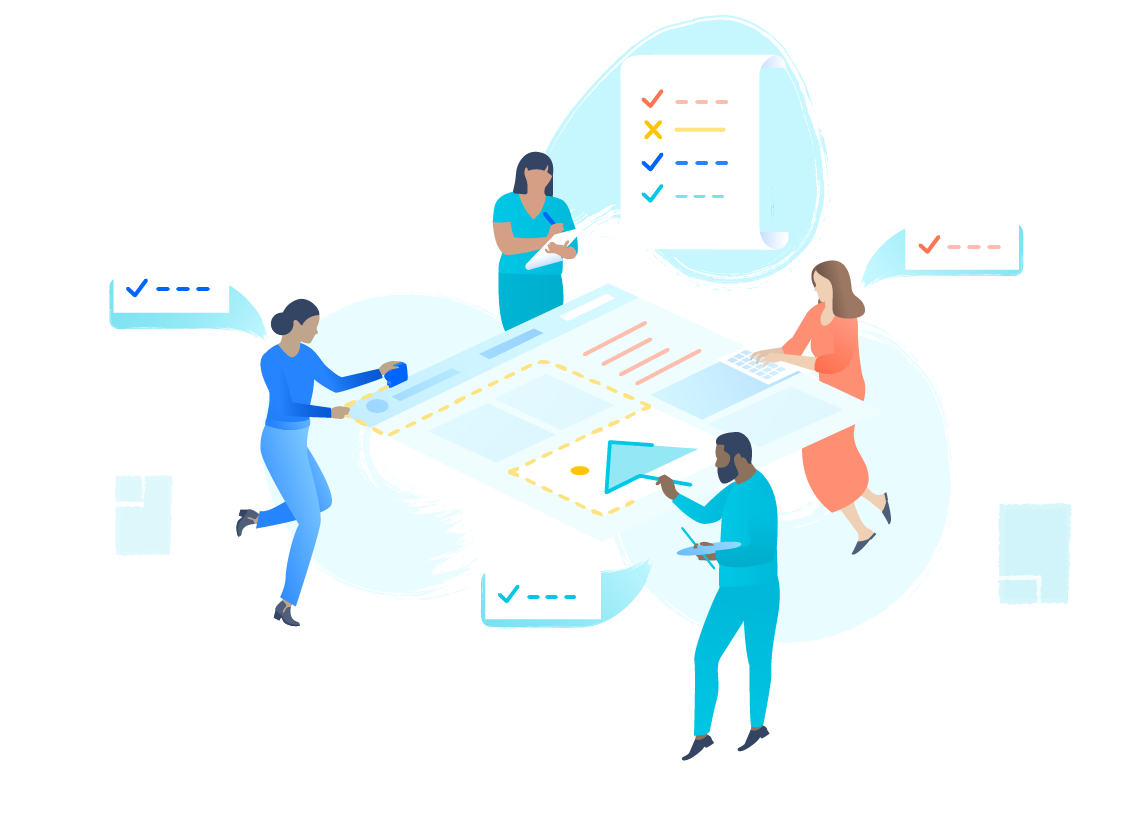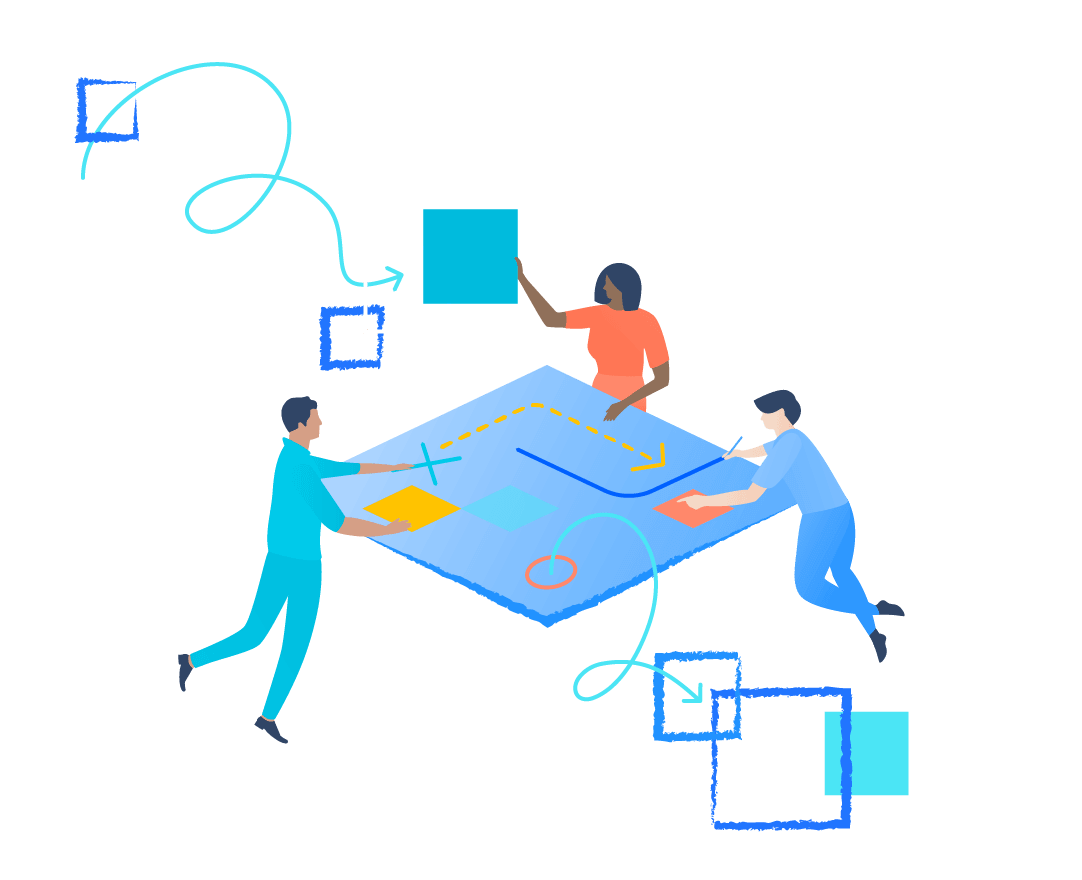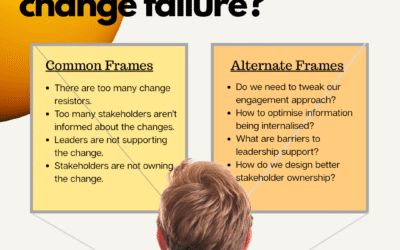Change visioning
Ensure you have clear and agreed change outcomes
and your stakeholders know what the end looks like.
60 min
5+ People

Our latest knowledge articles
Beyond Project Support: Making Enterprise Change Management a Strategic Powerhouse
The Strategic Blind Spot in Enterprise Change Management In today’s volatile business environment, enterprise change management (ECM) functions are under mounting pressure to prove their value. Despite the proliferation of change initiatives - ranging from digital...
How Change And Transformation Leaders Can Escape the “Pig Wrestling” Trap: Mastering Problem Cleansing to Drive Real Change
Wrestling with Pigs - Why Change Leaders Get Stuck in the Mud As change and transformation professionals you know the feeling: you’re deep in a change initiative, but progress is elusive. No matter how many workshops you run, how many stakeholder meetings you hold, or...
Change Management in the Digital Age: Leveraging AI, Data, and Automation for Strategic Impact
The Stockholm Syndrome in Change Management Teams Change management teams have long prided themselves on enabling organisations to adapt, evolve, and thrive in the face of constant disruption. Yet, a curious irony persists: many change management teams themselves are...
What you’ll need
REMOTE
Video conferencing with screen sharing
Digital collaboration tool (Zoom, Hangout)
IN-PERSON
Whiteboard
Markers
Post-it notes
Timer
Instructions for running this Playbook
1. Prep
Scheduling:
Book the session well in advance to ensure you include all critical project representatives.
Organisation:
Prior to the session ensure you have already identified potential dynamics amongst the stakeholders and be ready to facilitate the discussions to reach a clear outcome. If needed do your research on the various players in the session and their preferences, assumptions and working/communication styles. Be prepared to challenge the group to ‘dig deeper’ to really flesh-out what the outcome really means.
Ensure you allocate a timer for each section of the activity. This session can easily turn into a ‘talk-fest’ with no end in sight if not managed well.
TIP: SCHEDULING
Agile teams should aim to run change visioning sessions in an hour.
However to run this session on time strict time management and communication is required. And if you anticipate divergent points of views, you may need to allocate pre-work.
TIP: FACILITATION
Strong facilitation skills is required to ensure this session works well. Listen intently and look out for conversations that may stray away from the focus or that are overly detailed.
Agree on the design and flow with the sponsor/senior manager prior to the session so that you two are fully aligned.
2. Identify stakeholders
Who:
Include key stakeholders such as the sponsor, business owner, project manager, and business representatives. There may be other project representatives that should be included if they have been identified and appointed to the project, e.g. business analyst and technical lead. Key players such as the sponsor, business owner and project manager must be present. Their roles cannot be delegated to another person.
Some stakeholders may not understand why this session is required. Having a clear change vision and end state is one of the most important outcomes required for achieving success in a project. Significant research has shown that without a clear change vision, the project will most likely fail.
.
3. Run the session
Introduction – 5 min
Introduce participants, the overall session design and flow. Go through detailed agenda, objectives, roles and responsibilities and outcome anticipated. Also run through any ground rules in participation.
Set the scene – 10 min
Here representatives share perspectives on what is expected in terms of change outcomes. These outcomes would be what have already been agreed by senior leaders when this project was agreed. In this portion, participants are encouraged to listen and ask as many questions as possible to crystallise change outcome expectations communicated.
Representatives could include:
– Senior manager
– Project manager
– Project sponsor
– Business analyst
– UX researcher/designer
Brainstorm – 30 min
This is ‘meat’ of the session where all participants discuss and brainstorm on crystallising what the vision or end state of the change looks like in a concrete way.
The key topics to discuss include:
– What would success look like for each group of people impacted by the change? What behaviours will they show?
– What processes and systems will need to happen to support this? And what would success look like for these processes and systems?
– What parts of the vision can/will capture the ‘hearts and minds’ of people, ideally in an emotional way, and in a way that they can relate to
If you have a group of 10+ you may want to break the group into 3-4 so that there is sufficient time for each participant to contribute to the conversation.
Capturing outcomes – 15 min
Capture core theme generated across groups by listening to group report out. The important part here is not to worry about ‘word-smithing’ since there is not time for this. Instead, focus on the core of key themes reported out across groups.
Playback the themes captured and gain commitment across the participants that these are accurate.
Depending on the complexity of the program, this session may need to be longer, or that there may need to be a follow-up session. The key is in preparation and ensuring that participants have great clarity of the design and output of the session before coming.
After the session, work with key select representatives or communication support staff to draft and ‘word-smith’ change outcomes artefacts. These could be:
– statements
– persona behavioural descriptions
– picture outlining core themes
What to do with the output?
The output is a critical artefact that should be constantly reference, explained and incorporated across project delivery and when communicating to various stakeholders.
TIP: LARGE GROUPS
Spend time communicating and liaising with participants to ensure they are super clear of their role in this session and the output required.
Manage breakout groups by assigning roles and responsibilities within each group, e.g. time keeper, lead, scribe, etc.
Call out clearly potential ‘rabbit holes’ so that discussions don’t veer off-track. E.g. discussing process or system details, stakeholder involvement, detailed scope, etc.
Change vision is about ‘what it looks like at the end of the journey’.
Explore other Plays

The next playbook
Coming soon – stay tuned.

The next playbook
Coming soon – stay tuned.

The next playbook
Coming soon – stay tuned.

Keep up with change
Stay up-to-date on the latest Playbooks, change tips, and tricks with our newsletter.


